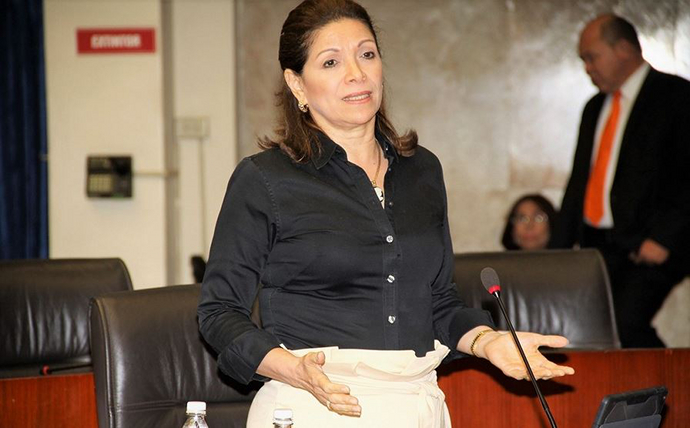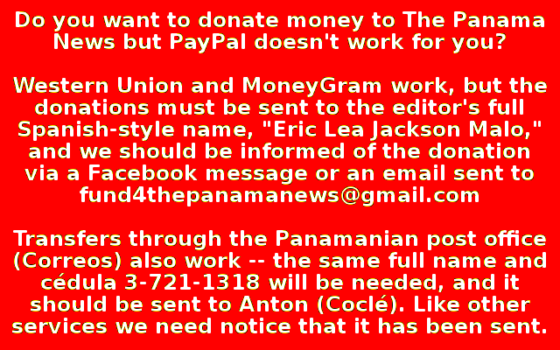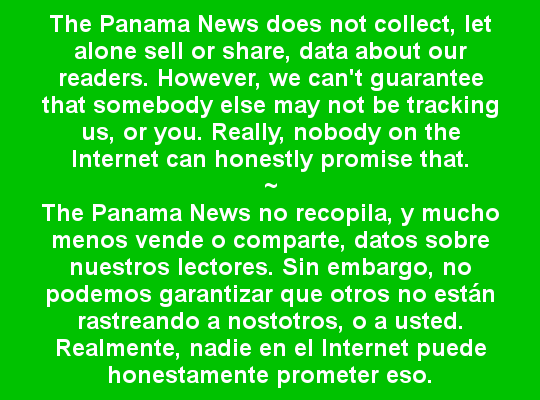Independent legislator and presidential candidate Ana Matilde Gómez. She has long warned that Panama will face stiffer international sanctions if we don’t make tax evasion a crime. National Assembly photo by Johanna González.
Oft-delayed vote on tax evasion may come on Monday
by Eric Jackson
The international heat is on Panama. International organizations like the Organization for Economic Cooperation and Development (OECD, mostly a rich countries’ group), its Financial Action Task Force (FATF), Latin American counterparts and a number of countries in this region have long been making demands, one of the key ones being that Panama make tax evasion a crime. We have for years been on and off of various black lists and “gray lists,” to the point that a lot of financial institutions either flat-out refuse to deal with any transactions involving Panama or else impose time-consuming extra scrutiny in such cases.
The criminalization of tax evasion, however, is only one of many demands. The OECD declared long ago that “the era of banking secrecy is over” and has applied off-and-on pressure, quite unevenly, to make this so. Panama has agreed in principle and dragged its feet. Within the OECD, countries are divided between their tax collectors and powerful rich people and corporations, making the hypocrisy a multilateral affair.
Why should anyone else care about Panama’s tax evasion laws? It’s because this country, which only has civil penalties for tax evasion, won’t extradite or open a criminal investigation for an offense that is not a crime here. If some American tax cheat parks his or her money here, there may be tax information sharing agreements but if that American is living here Panamanian authorities won’t do more than share data.
The torque is increasing on Panama’s arm, hence a proposal to criminalize tax evasion, Bill 591. This would make tax evasion a crime, but only in cases involving more than a $300,000 tax loss to the state.
The bill passed through committee on first reading in October, but has met opposition in the National Assembly plenum. Last year’s second regular legislative session ended without the bill coming to the full legislature. It was put on the agenda for a December special session, but on the 28th of last month — our local equivalent of April Fools Day, by the way — Assembly president Yanibel Ábrego gaveled the session to a close without bringing up that matter.
It seems that some of the lawyers in the body, whose firms create corporate shells precisely for the purpose of concealing tax evasion by their foreign clients against foreign governments, were quite happy to see the legislation stall and wished for its ultimate demise. By and large the banking sector, which is in no hurry to get rid of secrecy, wants to see the law passed because they find sanctions and discriminatory treatment time consuming, annoying and a factor that drives business away.
Those opposing the measure rarely come out and say that, but rather ask whether passing it calls off the black lists, gray lists and other hurdles for transactions with Panama. The answer is fairly clearly that it won’t solve the long-running dispute.
When legislators gathered for a January 22 “permanent session” — one day of debate, it turned out to be — PRD legislator (and attorney) Zulay Rodríguez played anti-foreigner, constitutional and procedural cards. It got heated and enough of the deputies left the room to the point where there was no quorum. An exasperated — or so she played it — Yanibel Ábrego gaveled the session closed and rescheduled the vote on second reading for Monday, January 28.













